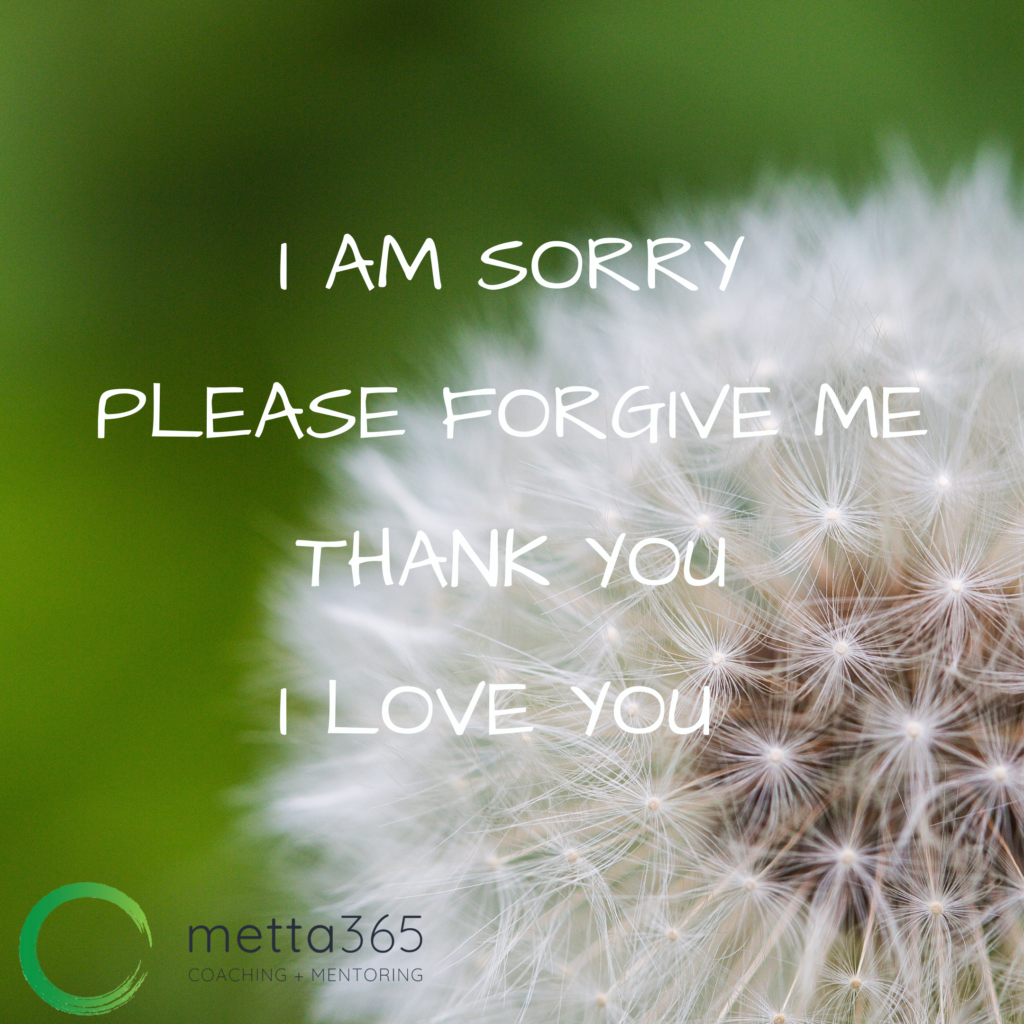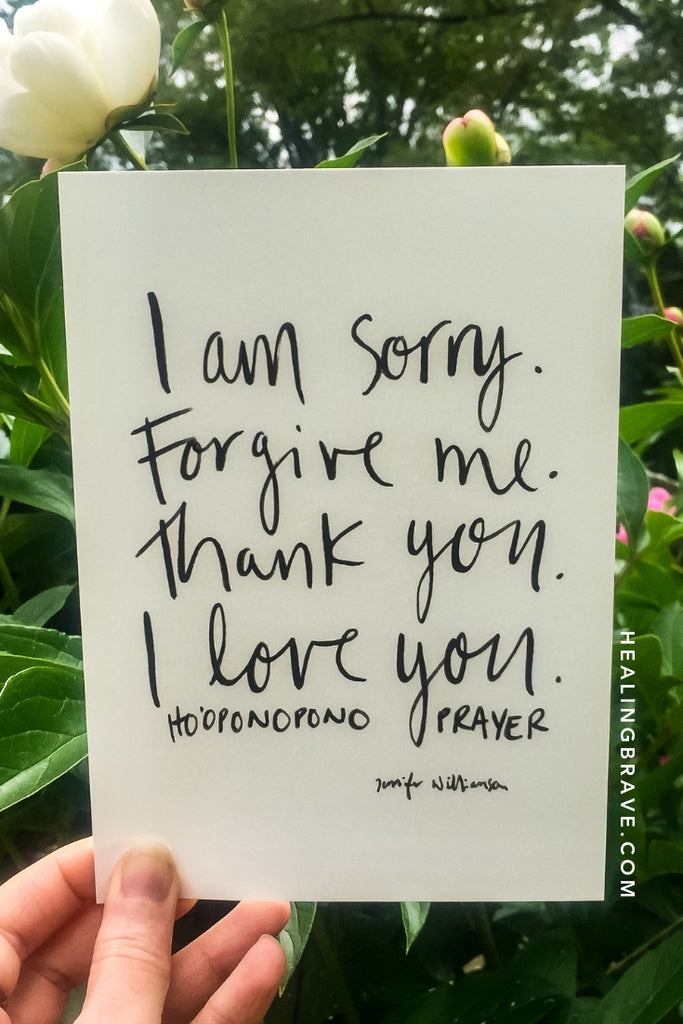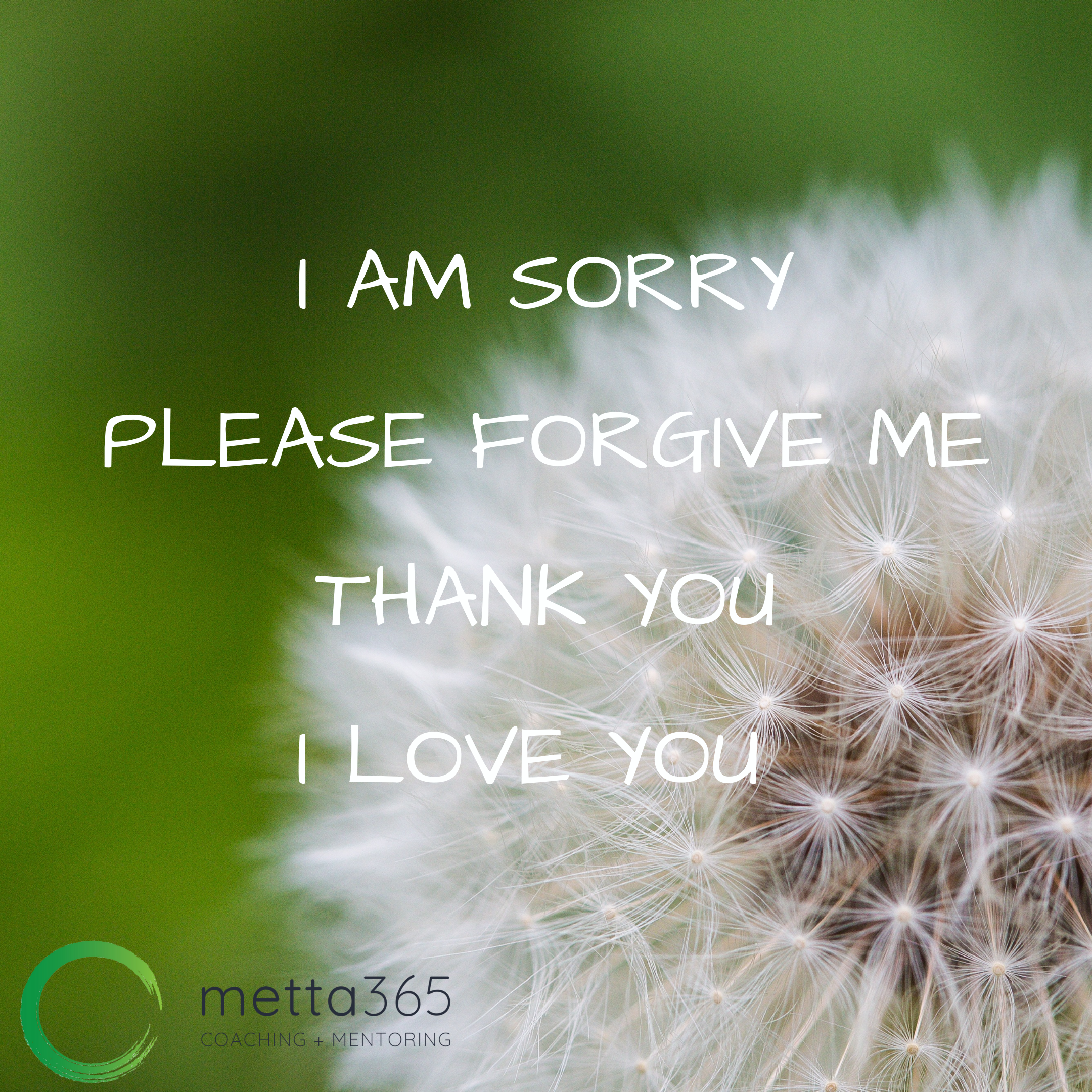In the practice of Ho’oponopono, an ancient Hawaiian forgiveness and reconciliation technique, compassion serves as a fundamental cornerstone. By embodying compassion, individuals are able to heal past wounds, restore harmony in relationships, and experience profound personal growth. This article explores the vital role that compassion plays in Ho’oponopono and how cultivating this quality can bring about transformation and peace in one’s life.

Understanding Ho’oponopono
Ho’oponopono is a traditional Hawaiian practice that focuses on reconciliation, forgiveness, and healing. It is deeply rooted in the rich cultural and spiritual heritage of the Hawaiian people. The purpose of Ho’oponopono is to restore harmony and balance in relationships, both within oneself and with others. Through this practice, individuals strive to release negative emotions, let go of resentments, and embrace a state of unconditional love and compassion.
Origins of Ho’oponopono
The origins of Ho’oponopono can be traced back to ancient Hawaiian traditions and customs. It was originally used as a way to resolve conflicts within families and communities. Ho’oponopono was seen as a sacred ritual, guided by kupuna (elders) or spiritual leaders, who facilitated the process of reconciliation and forgiveness. The practice was passed down through generations, preserving its essence and wisdom.
Meaning of Ho’oponopono
The word “Ho’oponopono” itself has a profound meaning. In the Hawaiian language, “Ho’o” means “to make” and “ponopono” means “right.” So, Ho’oponopono can be interpreted as the process of making things right or restoring harmony. It encompasses the understanding that when conflicts arise, it is essential to address them and seek resolution, rather than allowing them to fester and create further disharmony.
Basic Principles
Ho’oponopono is based on several fundamental principles. First and foremost, it emphasizes personal responsibility and accountability. It acknowledges that each individual plays a role in creating and perpetuating conflicts, and thus, it is their responsibility to take action to resolve them. Ho’oponopono also recognizes the interconnectedness of all beings, highlighting the importance of collective well-being over individual desires. Additionally, the practice emphasizes the significance of forgiveness, compassion, and love as essential elements in creating a harmonious existence.
Four Key Phrases
At the heart of Ho’oponopono are four key phrases, often referred to as “The Four Agreements” or “The Four Mantras.” These phrases serve as guiding principles throughout the practice:
- “I’m sorry”: This phrase embodies the humility and willingness to take responsibility for one’s actions and the impact they may have had on others.
- “Please forgive me”: By requesting forgiveness, individuals acknowledge their mistakes and express their sincere desire for healing and reconciliation.
- “Thank you”: This phrase expresses gratitude for the opportunity to learn and grow from the challenges and conflicts encountered on the journey.
- “I love you”: The ultimate expression of compassion and unconditional love, this phrase embraces the essence of Ho’oponopono by seeking to cultivate love and understanding throughout the process.
The Essence of Compassion
Compassion lies at the core of human connection and empathy. It is the ability to recognize and empathize with the suffering of others, and to respond with kindness, understanding, and a genuine desire to alleviate their pain. Compassion goes beyond sympathy or pity; it is a profound recognition of our shared humanity and a willingness to extend a helping hand without judgment or expectation.
Defining Compassion
Compassion is a multifaceted concept that encompasses both understanding and action. It involves perceiving the suffering of others, connecting with their emotions, and, most importantly, taking steps to alleviate their pain. Compassion is not limited to interpersonal relationships—it extends to how we treat ourselves, other living beings, and the world around us. It is a powerful force that has the potential to transform relationships and society as a whole.
Importance in Various Cultures
Compassion is not exclusive to any particular culture or belief system. It is a fundamental value found in diverse cultures and religions across the globe. From the Buddhist concept of “karuna” to the Christian teachings of loving thy neighbor, compassion is seen as a universal virtue that promotes harmony, understanding, and peace. Its universal nature underscores the profound impact and significance of compassion in fostering intercultural understanding and cooperation.
Connection to Empathy
Empathy is the ability to understand and share the feelings of another person. It is the stepping stone to compassion, providing a foundation for genuine connection and understanding. When we empathize with others, we can better comprehend their pain, struggles, and experiences, which then allows us to respond with compassion and support. Compassion and empathy are intertwined, working in tandem to create meaningful connections and bridge the gaps between individuals.
Compassion in Psychology
The field of psychology recognizes the transformative power of compassion. Research has shown that acts of compassion not only benefit the recipient but also have a positive impact on the well-being and mental health of the person expressing compassion. Engaging in compassionate acts can reduce stress, increase feelings of happiness, and enhance social connections. These findings highlight the reciprocal nature of compassion—by giving compassion, we also receive its profound benefits.
Integration of Compassion in Ho’oponopono
Compassion is an integral component of Ho’oponopono, as it aligns perfectly with the practice’s core philosophy of forgiveness, healing, and reconciliation. By embracing compassion, individuals can bring about profound shifts in their lives and relationships.
Core Philosophy of Forgiveness
Forgiveness is a cornerstone of Ho’oponopono, and compassion is the driving force behind this act of forgiveness. Through compassion, individuals can cultivate empathy and understanding for the experiences and emotions of others. This understanding allows forgiveness to flow naturally, as compassion opens the heart and creates a willingness to let go of resentments and grievances.
Compassion as a Healing Force
Compassion is a powerful healing force that can mend emotional wounds and repair strained relationships. When individuals approach conflicts and challenges with compassion, they create an environment conducive to forgiveness and growth. The act of extending compassion towards oneself and others promotes healing at a deep level, fostering personal transformation and fostering harmonious connections.
Importance of Self-Compassion
Self-compassion is an essential aspect of Ho’oponopono, as it acknowledges the need for individuals to care for and nurture themselves. By cultivating self-compassion, individuals can release self-judgment and embrace their inherent worthiness. Self-compassion allows individuals to fully engage in the healing process, addressing their own emotional wounds and demonstrating the love and kindness they wish to extend to others.
Compassionate Communication
Compassionate communication is a key aspect of Ho’oponopono, promoting understanding, empathy, and healing in conversations and interactions. By approaching communication with compassion, individuals can actively listen to others, validate their experiences, and respond with empathy and understanding. Compassionate communication creates a safe space for open dialogue, facilitating the resolution of conflicts and the restoration of harmonious relationships.
Compassion and the Ho’oponopono Process
Compassion plays a crucial role in every stage of the Ho’oponopono process, guiding individuals towards reconciliation, healing, and positive change.
Reconciliation of Relationships
At its core, Ho’oponopono is a process of reconciling and repairing relationships. Compassion serves as the bridge that connects individuals, allowing them to see beyond their differences and grievances. By approaching the reconciliation process with compassion, individuals can foster understanding, empathy, and forgiveness, creating the groundwork for harmonious relationships.
Releasing Resentment and Grudges
Resentment and grudges can be detrimental to personal well-being and relationships. Through compassion, individuals can empathize with the pain and suffering caused by these negative emotions, and find the strength to release them. Compassion allows individuals to see the humanity in themselves and others, opening the door to forgiveness and the healing of past wounds.
Embracing Unconditional Love
Ho’oponopono encourages individuals to embrace the power of unconditional love. Compassion facilitates this process by helping individuals recognize the inherent worth and goodness in themselves and others. Through compassion, individuals can transcend judgment and conditions, and embody a state of unconditional love that transcends personal desires or expectations.
Creating Positive Change
Compassion serves as a catalyst for positive change in Ho’oponopono. By approaching conflicts and challenges with compassion, individuals can transform their own attitudes and behaviors, paving the way for transformative growth. Compassion enables individuals to break free from negative patterns, offering an opportunity for personal and collective healing, and the creation of a more harmonious and peaceful world.

Cultivating Compassion in Ho’oponopono
Cultivating compassion is an ongoing process in Ho’oponopono. It requires individuals to deepen their self-awareness, enhance their empathy, and nurture kindness and understanding.
Deepening Self-Awareness
Self-awareness is a vital component of cultivating compassion in Ho’oponopono. By becoming aware of their own emotions, biases, and triggers, individuals can better understand how these factors influence their interactions with others. Cultivating self-awareness allows individuals to identify areas where compassion may be lacking and empowers them to make conscious choices to incorporate compassion into their thoughts, words, and actions.
Developing Empathy
Empathy is the ability to understand and share the emotions of others. In Ho’oponopono, developing empathy is essential for cultivating compassion towards oneself and others. By actively seeking to understand the experiences and emotions of others, individuals can expand their capacity for compassion. Empathy bridges the gap between oneself and others, fostering deeper connections and promoting healing and understanding.
Nurturing Kindness and Understanding
Kindness and understanding are nurtured through conscious effort and practice. In Ho’oponopono, individuals are encouraged to extend kindness and understanding towards themselves and others, even in challenging situations. By cultivating a mindset of kindness and understanding, individuals create a fertile ground for compassion to flourish. Small acts of kindness and gestures of understanding can have a profound impact on fostering compassion and healing.
Practicing Non-Judgment
Non-judgment is a necessary component of compassion in Ho’oponopono. By suspending judgment and letting go of preconceived notions, individuals create space for compassion to thrive. Practicing non-judgment allows individuals to approach conflicts and challenges with an open mind and heart, fostering deep understanding and facilitating the healing process.
Compassion as a Tool for Self-Healing
Compassion is not only directed towards others in Ho’oponopono; it also serves as a powerful tool for self-healing and personal growth.
Addressing Inner Wounds
We all carry inner wounds, often stemming from past traumas or painful experiences. Compassion offers a means to address these wounds with kindness and understanding. By nurturing self-compassion and self-acceptance, individuals can heal their inner wounds and release the pain that may be holding them back.
Forgiving Oneself
Forgiving oneself is a vital aspect of self-healing in Ho’oponopono. Compassion allows individuals to recognize their own fallibility and humanity, offering a path to self-forgiveness. By embracing self-compassion, individuals can release guilt, shame, and self-blame, nurturing their own well-being and cultivating a foundation for personal growth.
Releasing Guilt and Shame
Guilt and shame can be heavy burdens that hinder personal growth and healing. Compassion provides a means to release these emotions, allowing individuals to acknowledge their mistakes and take steps towards healing. By extending compassion towards oneself, individuals can let go of toxic feelings and cultivate a renewed sense of self-worth and emotional well-being.
Promoting Emotional Well-being
Compassion fosters emotional well-being by nurturing a supportive and nurturing inner environment. Through self-compassion, individuals can foster resilience, self-acceptance, and emotional intelligence. Compassion allows individuals to engage in positive self-talk, practice self-care, and prioritize their emotional well-being, contributing to overall mental and emotional health.

Compassion and Healing Relationships
Compassion is a catalyst for healing relationships and restoring harmony within families and communities.
Restoring Harmony in Family Dynamics
Family dynamics are complex, often fraught with conflicts and misunderstandings. Compassion offers a way to mend these fractures and restore harmony. By approaching family relationships with compassion, individuals can listen, understand, and communicate more effectively, fostering empathy, forgiveness, and healing within the familial bond.
Rebuilding Connections
Compassion plays a crucial role in rebuilding connections that have been strained or severed. Through compassionate communication, individuals can create safe spaces for dialogue and express their emotions and needs openly and honestly. Compassion facilitates the rebuilding of trust, understanding, and respect, allowing relationships to flourish and grow.
Healing Intergenerational Trauma
Intergenerational trauma refers to the psychological and emotional wounds passed down through generations. Compassion provides a means to address and heal these deep-seated traumas. By approaching intergenerational trauma with compassion, individuals can acknowledge and honor the pain experienced by previous generations, working towards healing and breaking the cycle of suffering.
Promoting Unity and Understanding
Compassion fosters unity and understanding within communities and society as a whole. By embracing compassion, individuals can bridge divides, challenge prejudices, and foster an inclusive and harmonious environment. Compassion promotes empathy, respect, and acceptance, paving the way for a more compassionate and connected world.
Practical Application of Compassion in Ho’oponopono
Incorporating compassion into one’s life can be done through various practices and techniques that enhance self-awareness and promote healing.
Meditation and Reflective Practices
Meditation and reflective practices provide a space for individuals to cultivate self-compassion and connect with their inner wisdom. Through meditation, individuals can quiet the mind, observe their thoughts and emotions, and nurture a compassionate mindset.
Recitation of Mantras and Affirmations
Reciting mantras and affirmations that emphasize compassion can reinforce this quality in everyday life. Mantras such as “I am compassionate” or “May all beings be free from suffering” can serve as powerful reminders to extend compassion to oneself and others.
Visualization Techniques
Visualization techniques can enhance the cultivation of compassion by helping individuals visualize acts of kindness, understanding, and forgiveness. By mentally picturing oneself and others engaged in compassionate actions, individuals can strengthen their capacity for compassion.
Journaling and Self-Reflection
Journaling and self-reflection allow individuals to explore their thoughts, feelings, and experiences more deeply. By engaging in these practices, individuals can gain insight into their own patterns, triggers, and areas where compassion may be lacking. Journaling also provides an opportunity to express gratitude and record acts of compassion witnessed or experienced.

Challenges in Applying Compassion in Ho’oponopono
While compassion is a powerful force, there may be challenges in fully applying it within the practice of Ho’oponopono.
Resistance to Forgiveness
Forgiveness can be challenging, especially when the pain or hurt runs deep. Individuals may resist forgiving themselves or others due to fear, anger, or a sense of justice. Overcoming this resistance requires patience, self-reflection, and a deep commitment to the healing journey.
Overcoming Deep-Seated Emotions
Emotions such as anger, resentment, and sadness may be deeply ingrained, making it difficult to approach conflicts with compassion. It is essential to acknowledge and honor these emotions, allowing them to be felt and understood. Through self-compassion and gentle self-reflection, individuals can begin to untangle these emotions and create space for compassion to emerge.
Dealing with Reluctance
Some individuals may be initially resistant to embracing compassion or may struggle to understand its significance in their healing journey. However, with patience, education, and gentle guidance, individuals can explore and discover the transformative power of compassion for themselves.
Maintaining Consistency
Cultivating compassion requires consistency and commitment. It is easy to become complacent or revert to old patterns when faced with challenging situations. However, by recognizing the importance of compassion and making a conscious effort to integrate it into daily life, individuals can gradually build a more compassionate mindset and approach to conflicts and relationships.
The Transformative Power of Compassion in Ho’oponopono
Compassion, at its core, has the potential to bring about profound transformations in individuals and communities when embraced within the practice of Ho’oponopono.
Facilitating Inner Growth
Compassion serves as a catalyst for personal growth and transformation. By cultivating compassion, individuals can release negative emotions, heal inner wounds, and create a positive and nurturing inner environment. The process of embracing compassion also fosters self-reflection, self-awareness, and a deep connection to one’s authentic self.
Promoting Healing on Multiple Levels
Compassion not only facilitates healing on an individual level but also has the power to heal relationships, families, and communities. By approaching conflicts and challenges with compassion, individuals can transcend personal biases and grievances, fostering understanding, forgiveness, and unity.
Strengthening Connection to Divinity
In Ho’oponopono, a connection to divinity is highly valued. Compassion deepens this connection by aligning individuals with the wisdom and love of the divine. Through compassion, individuals can tap into their innate spirituality and strengthen their connection to a higher power, providing guidance, support, and inspiration on their healing journey.
Embracing Peace and Freedom
Compassion ultimately leads to a state of inner peace and freedom. By embracing compassion, individuals can release the burden of grudges, resentments, and negative emotions, promoting emotional well-being and a sense of liberation. Compassion allows individuals to experience harmony within themselves and their relationships, creating a life rooted in love, understanding, and peace.
In conclusion, compassion plays an integral role in the practice of Ho’oponopono. It serves as a guiding principle throughout the process, fostering reconciliation, healing, and personal growth. Compassion enables individuals to release negative emotions, embrace forgiveness, and cultivate love and understanding within themselves and their relationships. By integrating compassion into their lives, individuals can experience profound transformative shifts, promoting harmony, unity, and peace on personal and collective levels.

